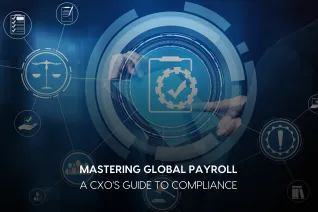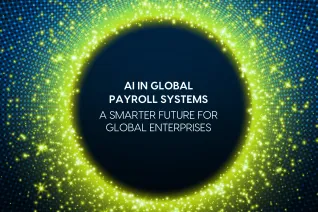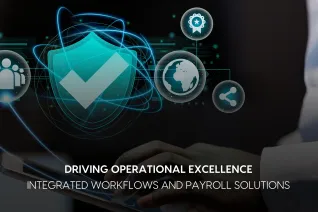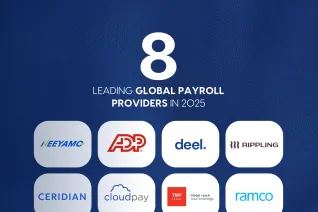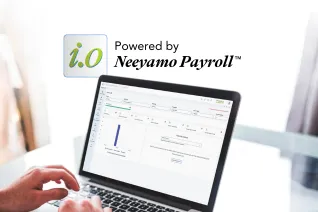Embracing Innovation: How HR Technology Can Benefit from Blockchain, RPA, AI, and ML
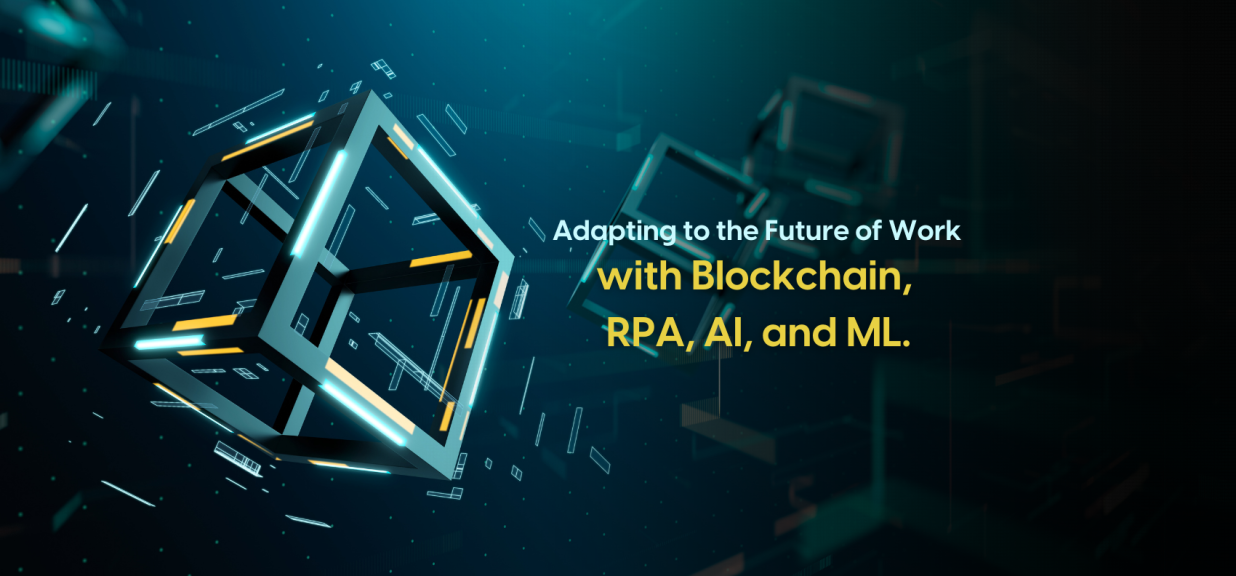
"Once a new technology rolls over you, if you're not part of the steamroller, your part of the road." Steward Brand
Organizations worldwide have recognized the need to adopt automated systems for handling their HR divisions, from storing confidential employee information to processing payroll. Thus, new business opportunities are being created in the SaaS (Software as a Service) market, compelling firms worldwide to deliver the best technology stack.
Today's biggest challenge that all technology giants face is adapting to change. Given the pace at which the world is moving, a new change is obviously heading your way. The lesson firms have taken from the Web 1.0 era is that there is always scope for businesses to adopt new tech releases.
ALSO READ | HR Tech Enabling Seamless Transition to Future of Work
Technology professionals across the world have suggested that the HR technology market can become fiercer with the adoption of the below innovative technologies:
- Blockchain technology
- Robotic Process automation
- Artificial Intelligence & Machine Learning
Blockchain technology
Blockchain technology is an advanced database mechanism that allows transparent information sharing within a business network. Through a database, a blockchain stores information electronically in a digital format. The innovation of a blockchain is that it guarantees the integrity and security of a record of data and generates trust without the need for a trusted third party or intermediary, a bank, for instance, or a DB manager.
Using Blockchain technology, organizations can store, manage and verify data securely with minimal data leak or manipulation risk and are a step closer to staying compliant with GDPR.
In the past year alone, more than 800,000 spoofing and identity theft cases were registered in the US alone, as reported by the FBI. Given that HR and Payroll firms around the world store confidential information of employees, implementing a blockchain mechanism would ensure minimal intervention from external sources and data tracking at a holistic level.
Blockchain technology is at the nerve center of ScreenXchange. Once a candidate's data is entered into the application, it is stored securely, ensuring maximum data security. The data can be used for future references; thus, verifications specialists can complete a check in record time.
ScreenXchange aims to optimize hiring by harmonizing screening policies and weaponizing technology. By integrating blockchain technology into its foundation, the system strives to create an unmatched experience through automated workflows and time-efficient service that is always compliant.
Robotic Process Automation Payroll
"As per the latest survey 4 out of 10 firms have dedicated teams towards automation R&D."
Organizations worldwide are leveraging new digitized processes and technological advances to implement automation solutions to minimize human intervention. The earliest process automation dates back to the 1960s when the first generation of enterprise resource planning (ERP) systems was introduced. Since then, we have been evolving to the latest Robotic Process Automation (RPA) form. This makes it easy to build, deploy, and manage software robots that emulate human actions interacting with digital systems and software.
Many metric calculations are involved in the pay register: OT Calculations, Tax deductions, meal voucher allowances, to social security deductions. If larger headcounts are to be managed, having human intervention in these areas can lead to a higher error rate percentage. Introducing RPA in these areas would ease the process and decrease the time and resources committed.
Neeyamo Payroll utilizes RPA technology to automate payroll processes that require manual intervention at a large scale. It automates all post-payroll reports and is directly dropped into cloud storage. It has multi-level controls to ensure adherence to local regulatory compliances. Company-specific policies and payroll metrics are read thoroughly after configuring the pay register.
DOWNLOAD | Global Work: Top 10 Predictions for 2023 and Beyond
Artificial Intelligence and Machine Learning
AI, or artificial intelligence, refers to the simulation of human intelligence in machines designed to think and act like humans. It involves the development of algorithms and computer programs that enable machines to perform tasks that typically require human intelligence, such as perception, reasoning, learning, and decision-making.
Over the last five years, AI has evolved significantly, driven by advancements in machine learning algorithms, the availability of substantial amounts of data, and the increasing accessibility of AI services through cloud computing. Deep learning algorithms have made remarkable progress in tasks such as image, files, and speech recognition, leading to better results and improved user experiences.
Neeyamo's ticketing application, ServiceDesk, utilizes machine learning technology to deliver a highly intuitive and user-friendly interface. Built to enrich the user experience, it uses smart bots that bring knowledge and query administration into a single platform.
Adopting innovative technologies like Blockchain, Robotic Process Automation, Artificial Intelligence, and Machine Learning is no longer an emerging conversation. It is a revolution from which no company wants to be excluded.
Learn how you, too, can be a part of it by embracing Neeyamo's innovative solutions to transform your business and continue to thrive in a rapidly evolving business landscape.
Reach out to us at irene.jones@neeyamo.com.
Latest Resources
Stay informed with latest updates
If you're curious and have a thirst for knowledge pertaining to the HR, payroll, and EOR universe, don't miss out on subscribing to our resources.






